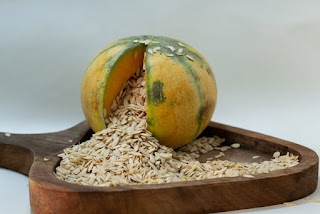Melon Seeds Market: A Nutritional Powerhouse for Health Enthusiasts
Melon seeds, often overlooked and discarded as waste, have been gaining attention in recent years for their numerous health benefits and culinary potential. These small but nutritious seeds are extracted from a variety of melon fruits, including watermelons, cantaloupes, and honeydews. The Melon Seeds Market has witnessed significant growth due to the increasing awareness of their nutritional value and versatility. In this article, we will explore the various facets of the Melon Seeds Market, including its growth drivers, regional variations, health benefits, and culinary uses.
Market Growth Drivers:
Increasing Health Consciousness: With a growing global emphasis on healthy eating, consumers are actively seeking nutritious alternatives to traditional snacks. Melon seeds have become a popular choice due to their rich nutrient profile, which includes essential vitamins, minerals, and healthy fats.
Sustainability and Zero Waste: As the world strives to reduce food waste, the use of melon seeds offers a sustainable solution. By repurposing these seeds, we reduce waste and make a positive environmental impact.
Vegan and Vegetarian Diets: Melon seeds are an excellent source of plant-based protein, making them an attractive option for vegans and vegetarians looking to meet their protein needs.
Regional Variations:
The Melon Seeds Market experiences some regional variations due to different melon varieties, traditional culinary practices, and consumer preferences. Here are a few examples:
African Market: In many African countries, roasted watermelon seeds are a popular snack, especially in Nigeria and Ghana. These roasted seeds are seasoned with various spices and are often consumed as a street food delicacy.
Indian Subcontinent: In India, dried and spiced cantaloupe seeds are commonly consumed as a savory snack. They are also used in various dishes like biryani and sweets.
Middle East: In the Middle East, melon seeds are often used in traditional desserts like Halva and Baklava, adding a unique texture and nutty flavor.
Health Benefits:
The health benefits of melon seeds are substantial, which has contributed to their increasing popularity in the market.
Nutrient-Rich: Melon seeds are rich in essential nutrients such as protein, fiber, vitamins (particularly vitamin B, niacin, and folate), minerals (magnesium, zinc, and potassium), and healthy fats.
Heart Health: The presence of monounsaturated and polyunsaturated fats in melon seeds can help lower bad cholesterol levels, reducing the risk of heart diseases.
Weight Management: The high protein and fiber content in melon seeds can aid in promoting satiety and reducing overall calorie intake, supporting weight management.
Digestive Health: The fiber content in these seeds can help regulate digestion and prevent constipation.
Skin and Hair Health: The vitamins and minerals in melon seeds promote healthy skin and hair by supporting collagen production and maintaining the health of hair follicles.
Culinary Uses:
Melon seeds have a diverse range of culinary applications, making them a versatile ingredient in various cuisines:
Snacks: Roasted melon seeds make for a crunchy and satisfying snack. They can be seasoned with salt, spices, or herbs for added flavor.
Baking: Melon seeds can be used as a topping for bread, rolls, and pastries, adding a delightful crunch and nutty flavor.
Soups and Salads: They can be sprinkled on soups, salads, or yogurt to enhance texture and flavor.
Confectionery: Melon seeds are used in a wide range of sweets and desserts, such as nougat, brittle, and trail mix.
Conclusion:
The Melon Seeds Market is on the rise, fueled by the growing awareness of the nutritional benefits and culinary versatility of these seeds. As consumers become more health-conscious and eco-friendly, the demand for melon seeds is likely to continue to increase. With their rich nutrient profile, regional culinary traditions, and potential for various applications, melon seeds are poised to become a staple ingredient in many households and cuisines worldwide. Whether enjoyed as a snack, added to dishes, or used in desserts, melon seeds offer a unique blend of flavor, nutrition, and sustainability.


.png)

Comments
Post a Comment